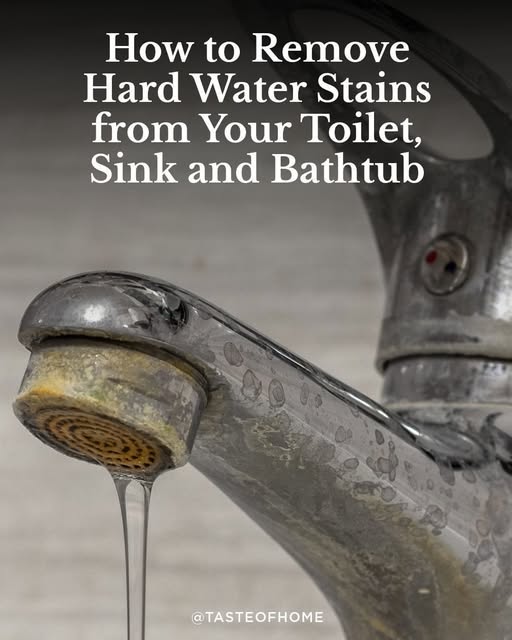ADVERTISEMENT
**How to Effectively Remove Hard Water Stains in Your Bathroom**
Hard water stains are one of the most common and persistent challenges homeowners face, especially when it comes to maintaining the cleanliness of bathrooms. These stains are caused by mineral deposits, primarily calcium and magnesium, that accumulate on surfaces after water evaporates. Over time, these deposits create unsightly spots on sinks, showerheads, tiles, and glass, making your bathroom appear dull and neglected. However, there’s no need to panic, as hard water stains can be removed with the right knowledge and tools.
In this article, we will explore what hard water is, how it affects bathroom surfaces, and provide step-by-step instructions on how to effectively remove hard water stains from your bathroom. We will also share some preventive measures to reduce the formation of these stubborn stains and keep your bathroom looking pristine for longer.
—
### **What is Hard Water?**
Before delving into the process of removing hard water stains, it’s important to understand what hard water is and why it causes staining in the first place.
**Hard water** refers to water that contains a high concentration of dissolved minerals, particularly calcium and magnesium. These minerals are naturally present in the earth and are picked up by water as it travels through rocks, soil, and other materials. When this water comes into contact with various surfaces in your bathroom, the minerals remain behind when the water evaporates, leaving behind stubborn white or cloudy spots.
The effects of hard water are most noticeable in areas with frequent exposure to water, such as:
– **Shower doors**
– **Toilets**
– **Sinks and faucets**
– **Bathtubs**
– **Tile grout**
These minerals, while harmless to your health, can make your bathroom fixtures look dirty and unattractive, as well as lead to the buildup of soap scum. It’s important to address hard water stains as soon as possible to prevent permanent damage to surfaces.
—
### **The Dangers of Hard Water Stains**
If left untreated, hard water stains can become more difficult to remove over time. The minerals can harden, resulting in more persistent and stubborn spots. Additionally, hard water can have the following negative effects:
1. **Surface Damage:**
Prolonged exposure to hard water deposits can cause surfaces, especially porcelain and glass, to become pitted or etched. This can lead to permanent damage, making it harder to clean and restore the appearance of your bathroom fixtures.
2. **Clogging of Showerheads and Faucets:**
The mineral buildup from hard water can clog your showerheads and faucets, reducing water flow and pressure. Over time, these blockages can damage plumbing systems, leading to costly repairs.
3. **Soap Scum Build-up:**
Hard water reacts with soap to form soap scum, a greasy, slimy substance that can accumulate on surfaces and make them look dingy. This combination of soap scum and mineral buildup makes it harder to remove stains.
4. **Increased Cleaning Efforts:**
Hard water stains often require specialized cleaning products or methods, which can be time-consuming and require more frequent maintenance.
5. **Appearance of Streaks:**
Hard water stains, especially on glass shower doors and mirrors, can leave behind streaks that are difficult to remove, making it seem as if the surface is never truly clean.
Understanding the impact of hard water on your bathroom surfaces can motivate you to tackle these stains as soon as they appear. Fortunately, there are plenty of effective methods and products available to help you do so.
—
### **How to Remove Hard Water Stains in Your Bathroom**
When it comes to removing hard water stains, there are several different approaches you can take. The following methods vary in terms of the cleaning agents and tools required, so you can choose the one that works best for your specific needs.
#### **1. Vinegar and Baking Soda**
Vinegar is a powerful and natural cleaner that works wonders on hard water stains. Its acidity helps break down the minerals that cause the stains, while baking soda acts as an abrasive to scrub away the buildup. This combination can be used on a variety of bathroom surfaces, from sinks to shower tiles.
**Ingredients Needed:**
– White distilled vinegar
– Baking soda
– A clean cloth or sponge
– A spray bottle
For Complete Cooking STEPS Please Head On Over To Next Page Or Open button (>) and don’t forget to SHARE with your Facebook friends
